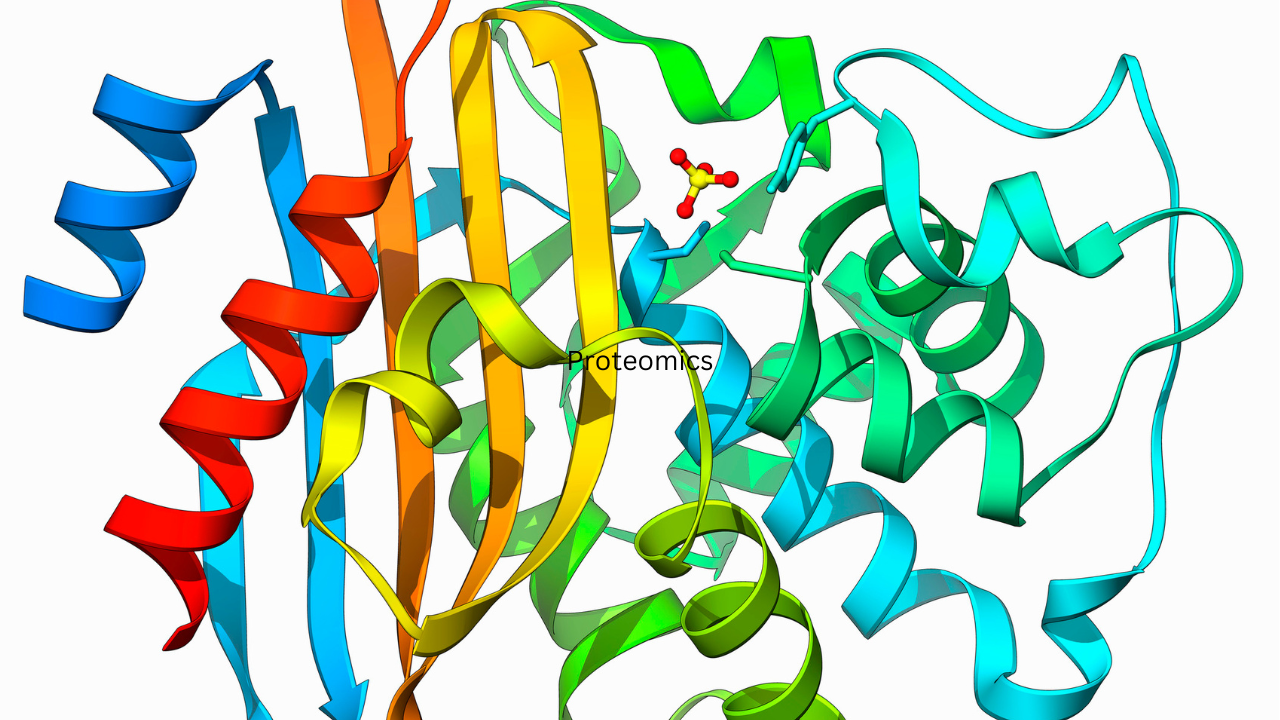Proteomic Insights: Unveiling Trends and Growth in the Market
Proteomics, the multifaceted study of proteins and their functions within biological systems, has evolved into a dynamic and rapidly expanding field in the domain of life sciences. This comprehensive exploration aims to delve deeper into the fundamental aspects of proteomics, elucidating its manifold benefits, diverse applications, various methods, current market trends, and the promising future that lies ahead.
What is Proteomics?
At its core, proteomics is the systematic and holistic investigation of proteins, embracing their structures, functions, and interactions within biological systems. Unlike genomics, which focuses on the entirety of an organism’s genome, proteomics seeks to unravel the mysteries of the proteome—the complete set of proteins expressed by a cell, tissue, or organism. This perspective is indispensable for understanding the complexities of cellular processes and the mechanisms underlying various physiological and pathological conditions.
Benefits of Proteomics:
Insights into Cellular Functions:
Proteomics serves as a powerful tool for researchers to gain a profound understanding of cellular functions. By identifying and characterizing proteins involved in diverse biological processes, this discipline contributes significantly to unraveling the intricacies of signal transduction, metabolism, and other essential cellular functions.
Biomarker Discovery:
A pivotal application of proteomics lies in biomarker discovery. Biomarkers, molecules indicative of specific biological states or diseases, play a crucial role in early disease detection, prognosis, and monitoring treatment responses. Proteomic analyses contribute to advancing the field of personalized medicine, enhancing the precision and effectiveness of medical interventions.
Drug Development and Target Identification:
Proteomics facilitates the identification of potential drug targets and provides insights into the interactions between drugs and their target proteins. This knowledge expedites drug development processes, resulting in more effective and targeted therapeutic interventions.
Applications of Proteomics:
Clinical Proteomics:
In clinical proteomics settings, proteomics is instrumental for disease diagnosis, prognosis, and monitoring treatment responses. The identification of disease-specific biomarkers through proteomic analysis enables precision medicine approaches, ultimately improving patient outcomes.
Pharmaceutical Research:
Proteomics plays a pivotal role in pharmaceutical research by aiding in target identification, drug development, and the assessment of drug safety and efficacy. This accelerates the drug discovery process, enhancing the success rate of new therapeutic interventions.
Agricultural and Environmental Proteomics:
In agriculture, proteomics is applied to improve crop yield and resistance to environmental stress. In environmental science, it contributes to monitoring pollution and understanding the impact of environmental factors on living organisms.
Proteomics Methods:
Mass Spectrometry:
At the forefront of proteomic methods is mass spectrometry, a key technique for identifying and quantifying proteins. By measuring the mass-to-charge ratio of ions, mass spectrometry provides detailed information about the composition and structure of proteins.
Two-Dimensional Gel Electrophoresis (2D-GE):
This method separates proteins based on their isoelectric point and molecular weight, enabling the visualization and analysis of complex protein mixtures. Two-dimensional gel electrophoresis remains a foundational technique in proteomic studies.
Market Research and Insights:
The global proteomics market has experienced substantial growth in recent years, propelled by advancements in technology, increased funding for research, and a growing demand for personalized medicine. Key market players are actively investing in innovative proteomic technologies, leading to the development of more efficient and high-throughput platforms. The market landscape is characterized by dynamic collaborations, strategic partnerships, and acquisitions, reflecting the industry’s adaptability and commitment to advancement.
The Future of Proteomics:
As technology continues to advance, the future of proteomics holds tremendous promise. Integration with other omics technologies, such as genomics and metabolomics, will provide a more comprehensive understanding of biological systems. The incorporation of artificial intelligence and machine learning algorithms into data analysis will enhance researchers’ ability to extract meaningful insights from large and complex proteomic datasets.
Additionally, the emphasis on single-cell proteomics and spatial proteomics is poised to open new frontiers in exploring cellular heterogeneity and spatial organization. Single-cell proteomics allows researchers to investigate individual cells, unraveling the intricacies of cell types and their functions within complex tissues. Spatial proteomics, on the other hand, provides insights into the subcellular localization of proteins, shedding light on the spatial organization of cellular processes.
Conclusion
In conclusion, proteomics stands as a vanguard in scientific discovery, offering profound insights into the molecular intricacies of life. The continued growth of the proteomics market, coupled with ongoing technological innovations, ensures that this field will play a pivotal role in advancing our understanding of biology and transforming healthcare, agriculture, environmental science, and other industries in the years to come.
The interdisciplinary nature of proteomics, fueled by collaboration and innovation, positions it as a cornerstone in the pursuit of knowledge and the development of groundbreaking applications across diverse domains. As we journey into the future, the horizon for proteomics appears boundless, promising new revelations and transformative impacts on our understanding of life and its myriad complexities.
Share this post if you find it useful -
-
Facebook
-
Twitter
-
Linkedin
83422+ Reports Delivered
Accurate market data is crucial to a successful business strategy. With an 85% + accuracy in all reports, makes us one of the best and most accurate firms in the world.
Need Customized ReportCall NowRecent Post
-
The Impact of Military Drones on Global Defense Strategies
-
Smart Sensor Electronics: A Game Changer for Consumer Electronics
-
The Future of IT: Key Trends in the Cloud Migration Services Market
-
Dental 3D Printing Market Growth: Innovations and Predictions for 2024
-
Investment Opportunities in the Military Drone Market

